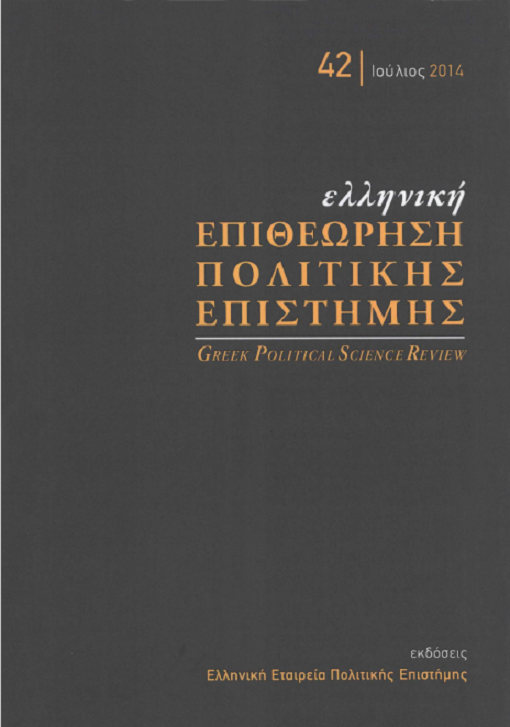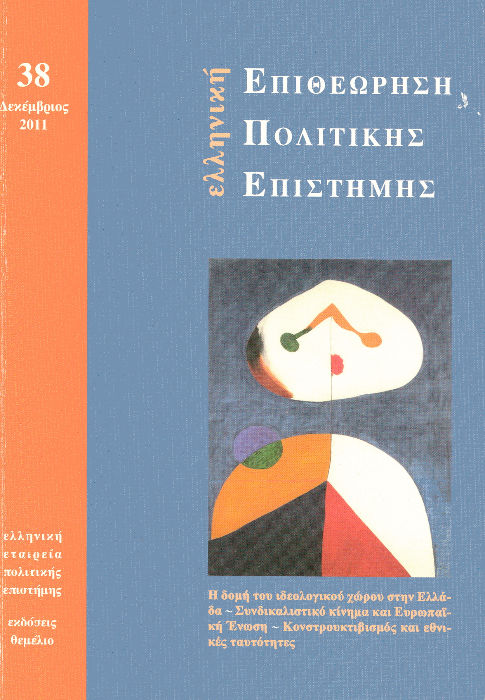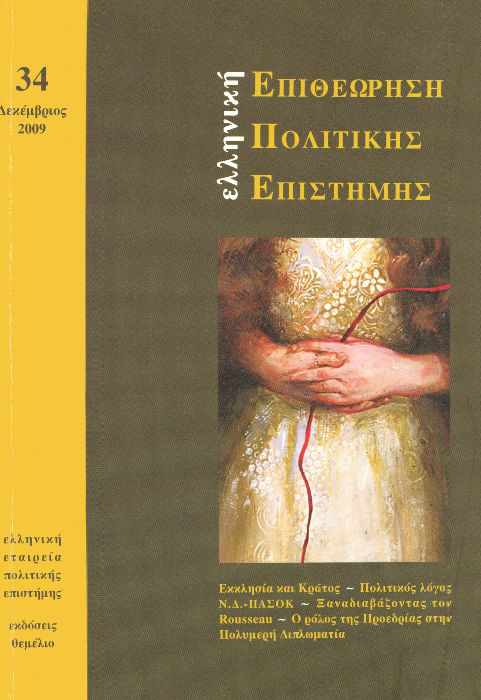Ειδησεογραφικό περιεχόμενο και τάσεις του εκλογικού σώματος: η πρώτη περίοδος της κρίσης, 2009-2011
Resumen
Το άρθρο διερευνά m σχέση ειδησεογραφικού περιεχομένου και τάσεων της κοινής γνώμης στην Ελλάδα, σε συλλογικό και ατομικό επίπεδο, κατά την πρώτη περίοδο της οικονομικής κρίσης, μεταξύ Ιανουαρίου 2009 και Μαρτίου 2011. Συγκεκριμένα περιγράφεται το τοπίο της πολιτικής ειδησεογραφίας της περιόδου, τόσο σε επίπεδο προβολής πολιτικών κομμάτων, όσο και σε επίπεδο θεματολογίας, καθώς και το πόσο και πώς η τηλεοπτική πολιτική ειδησεογραφία επηρεάστηκε από το πρώτο Μνημόνιο που τέμνει τη διερευνώμενη περίοδο ακριβώς στο μέσο. Ελέγχονται οι «κλασικές» υποθέσεις ότι αφενός αυξημένη ποσοτικά προβολή ενός κόμματος και αφετέρου αυξημένη πραγμάτευση θεμάτων που το κόμμα κατέχει συσχετίζονται με αυξημένες δημοσκοπικές επιδόσεις του κόμματος και εντοπίζονται ενδιαφέρουσες επιμέρους συσχετίσεις. Τέλος εξετάζεται σε ένα πρώτο επίπεδο η δυνητική επιρροή της έκθεσης στο περιεχόμενο των Μέσων στην πολιτική συμπεριφορά και εντοπίζεται μια ενδιαφέρουσα «επίδραση κυρίαρχης αφήγησης».
Article Details
- Cómo citar
-
Τσατσάνης Μ., & Τσίρμπας Γ. (2017). Ειδησεογραφικό περιεχόμενο και τάσεις του εκλογικού σώματος: η πρώτη περίοδος της κρίσης, 2009-2011. Ελληνική Επιθεώρηση Πολιτικής Επιστήμης, 42, 173–202. https://doi.org/10.12681/hpsa.14576
- Sección
- Άρθρα

Esta obra está bajo una licencia internacional Creative Commons Atribución-NoComercial-CompartirIgual 4.0.
Οι συγγραφείς θα πρέπει να είναι σύμφωνοι με τα παρακάτω: Οι συγγραφείς των άρθρων που δημοσιεύονται στο περιοδικό διατηρούν τα δικαιώματα πνευματικής ιδιοκτησίας επί των άρθρων τους, δίνοντας στο περιοδικό το δικαίωμα της πρώτης δημοσίευσης. Άρθρα που δημοσιεύονται στο περιοδικό διατίθενται με άδεια Creative Commons 4.0 και σύμφωνα με την οποία μπορούν να χρησιμοποιούνται ελεύθερα, με αναφορά στο/στη συγγραφέα και στην πρώτη δημοσίευση για μη κερδοσκοπικούς σκοπούς και με δικαίωμα τροποποίησης μόνο με παρόμοια διανομή (αν αναμείξετε, τροποποιήσετε, ή δημιουργήσετε πάνω στο υλικό, πρέπει να διανείμετε τις δικές σας συνεισφορές υπό την ίδια άδεια όπως και το πρωτότυπο).




